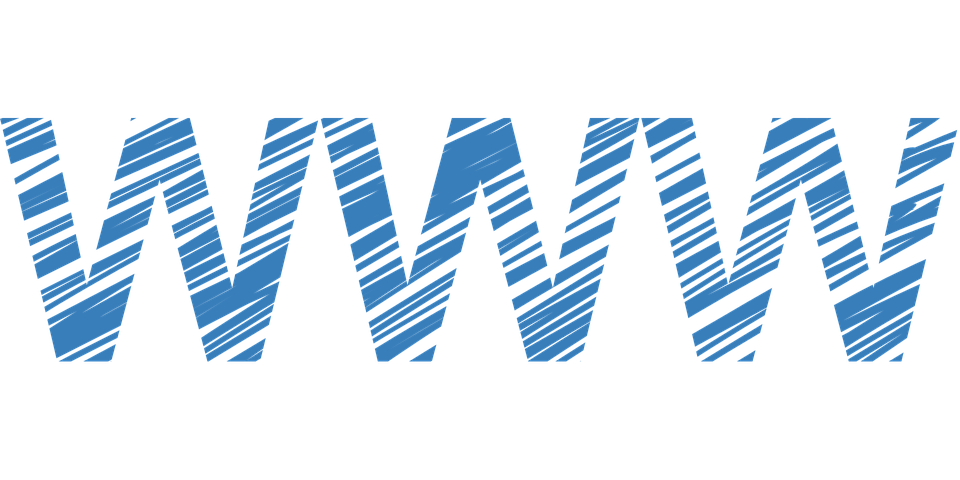A big part of your eCommerce presence is going to be what you name your site, what website address you use and where you place it, all of which will determine how easy it is to find your website on the internet.
Your website address doesn’t necessarily need to have your company name on it, but it will need something related to it, or your business in order to be good for marketing and search engine friendly. A website address is what is called a domain.
Think of your website’s address as your physical address. Now that you have an internet address, you need an internet building to house the content that you want to manage at said address, and that building is called a hosting.
In this chapter, you’ll be learning about both domains and hosting. You’ll learn how to use them for eCommerce and about the best domain and hosting solutions available.
What is a Domain?
A domain is an internet address used to direct visitors to a website address. The most commonly used for eCommerce are .com and .net. A domain name is the extension of the domain, and it serves to easily identify it by a preferably simple and easy to spell name.
Using a domain name simplifies access to a website, as well as indexing a website on common search engines like Google. Before going into the more complex technicalities of creating your eCommerce website, this is the first thing that you need to think about.
A domain name needs to be obtained through a domain registrant like godaddy.com, which is a domain name registrant and hosting Services Company.
Go to godaddy.com and enter your preferred domain name on its search bar to make sure that said domain name is available.
Once you see your domain name available, you have to select the domain for your website. For eCommerce websites, the most commonly used are .com, .net, and .biz. Creating a domain name should be easy, and common guidelines include keeping it short and easy to remember.
You have to consider this strongly, because sometimes domain names won’t be available, so you’ll need to come up with alternative domain names to create the best one for your website. Remember to associate your brand name with what you offer in your domain name!
What are the best Domain Solutions out there?
Namestation is a domain name generator service that offers you the chance to try out some word combinations before deciding on a domain name. You have to sign up before you can use the service, but after you’re registered you’ll have access to great tools.
To sign up, you just need to enter your email address and click on “create account”. After creating your account and signing in, you can go to the main page and enter keywords into the bar and hit “get name suggestions”, to match it with other ones to generate proper suggestions.
You can also scroll down and use more specific search methods like “standard search” and “advanced search”.
After you have created a great domain name, you have to buy it through a domain registrant. For eCommerce, we chose HostGator as the domain registrant to use, because it offers a very straightforward domain name shopping experience.
Go to www.hostgator.com and click on “domains”, where you’ll be presented with a search bar to check your domain name availability and its domain extension which, again, we recommend being .com or .net or .biz.
After this page loads, you’ll be shown availability for your domain name of choice and its price based on its domain extension, which will also be its price for a year. After that, you’ll need to renew it. Click on “price” to see its pricing if paid for 2 or 3 years.
After checking availability and price, you can buy your domain name by clicking on “add to cart” to complete the checkout process.
What is Hosting?
Hosting is the action of hosting your website on the internet. You have to do this through a hosting service provider, which houses physical servers to locate websites and their data. It is common to host your website with the same company that sold you the domain name.
A hosting service provider should offer storage capacity for pictures and files, decent or unlimited bandwidth for handling traffic, and technical support. Optional features include email extension for your website and integration with external applications and services.
Hosting for eCommerce should be influenced by each particular website’s needs. Factors influencing selection of provider are the type of products to be sold and how are they going to be promoted, because hosting a large volume of files, like high resolution pictures can take up lots of storage space.
Also, bandwidth needs to be considered when the site gets popular, especially during holidays. If you want to present a professional presence, you’ll need email extensions plus website building options and templates.
Hostgator.com, for example, offers you different options with each plan. You can click on “webhosting” and see the different plans and their features, starting with the “hatchling plan” priced at $3.50, the “baby plan” at $4.95 and the “business plan” at $8.95, all billed monthly!
What are the best Hosting solutions out there?
For eCommerce, one of the best options around is inmotion’s eCommerce solution, because it offers one of the best suite of features for starting an eCommerce website from the ground up in the market.
Go to www.inmotionhosting.com, search for “eCommerce hosting” and click on it. What should grab your attention first is the fact that they host your eCommerce site on a SSD drive, which is 20 times faster than traditional hard drives.
You can buy one of their plans, “launch” for $4.19, “power” for $5.39 and “pro” for $8.99, all billed monthly, and all of them featuring integration with top eCommerce apps, SSL integration for security, solid state drive hosting, free domain and a 90-day guarantee!


